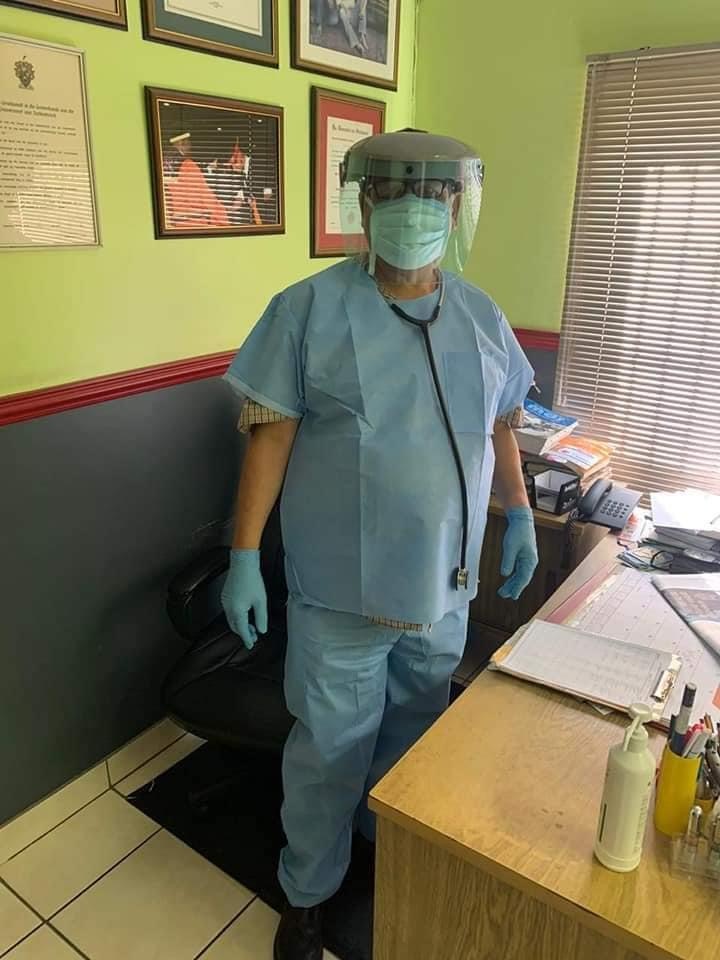The outbreak of the COVID-19 pandemic has put a strain on the healthcare system in terms of its physical and human resource infrastructure. While there is an increasing number of COVID-19 patients that are being admitted than can be handled by healthcare systems, healthcare workers are also bearing the brunt of the pandemic that has increased their workload and exposed them to the risk of contracting the virus. This has translated into mental health issues for the healthcare workers in terms of burnout, anxiety, agitation, and depression as the healthcare workers try to navigate the unprecedented challenges at their workplace. This study examines the mitigating measures that have been put into place to ensure that the mental strain that healthcare workers are undergoing in the face of the pandemic are effectively mitigated (Visagie, 2020).

The protection of the wellbeing of healthcare workers who are at the frontline in terms of caring for persons infected with COVID-19 has been considered as critical for sustaining the long-term capacity of the health workforce (Wu et al., 2020). The contagious nature of COVID-19 alongside its prolonged incubation period of between 2 to 14 days makes it stressful for healthcare workers who come into contact with the patients daily as they fear to infect their family, colleagues, and friends (Hu, et al., 2020). The provision of psychological support to the healthcare givers is a significant mental health challenge as the spread of the virus progresses (Wu et al., 2020). There is therefore the need for immediate measures to be enacted to safeguard the psychological and mental welfare of healthcare practitioners to enable them to be more effective particularly when their services are highly demanded.

Various studies have examined the mental and psychological strain that medical practitioners have had to contend with as they provide services to COVID-19 patients. For instance, Man et al. (2020) note that apart from the fear of being exposed, healthcare givers are anxious about the prevailing shortages of personal protective equipment. The study proposes online learning as an approach for mitigating mental health challenges for healthcare workers, whereby they are provided with psychological support. This is an effective method for intervening, in this case, considering the need for social distancing which is a critical step for flattening the curve.
Blake et al. (2020) found that due to the strain that the COVID-19 has put on the healthcare system in terms of the influx in patients, healthcare workers are forced to work for a long and irregular hour leading to burnouts that are made severe by the anxiety that they are experiencing about their health. The study recommended self-care for healthcare workers where they take work breaks and rests to manage fatigue and to also cope with confinement and isolation.
Out et al. (2020) established that the healthcare front workers were putting the welfare of COVID-19 patients over their own and that this has invariably put a strain on their mental health. Sulaiman et al. (2020) note that the devastating nature of COVID-19 is inevitably resulting in vicarious trauma on the workers in the healthcare settings. These workers present higher levels of severe mental health symptoms, with most succumbing to them due to the fear of getting infected occasioned by the unprecedented global failure of providing them with PPEs. The study proposed the development of social support systems for the healthcare workers which could be facilitated at the workplace by peers or at domestic levels with the help of friends and family members. The system could also include signposting and supporting whereby psychological first aid is provided to the affected or identified healthcare workers.

The reviewed literature has indicated that mental health is a significant challenge to healthcare workers who are on the frontline in the fight against the COVID-19 pandemic. The pressure of their current work that is occasioned by the fear of infection due to lack of PPEs and the increased workload that has led to burnouts has made these workers susceptible to mental health challenges. Some of the mitigating approaches that are being adopted to help healthcare workers tackle mental health challenges include online social support programs, self-care sessions where the healthcare workers take breaks to rejuvenate from the pressures of their works, and social support system through which psychological first aid is provided to the workers at their workplace.
Dr. Enver Katzen, Medical Practitioner whose practice was run from Heidedal, South Africa died on September 9, 2020 from coronavirus complications. We love and miss your vibrant smile. May your beautiful soul rest in peace….
References
Blake, H., Bermingham, F., Johnson, G., & Tabner, A. (2020). Mitigating the Psychological Impact of COVID-19 on HealthcareWorkers: A Digital Learning Package. International Journal of Environmental Research and Public Health, 17(2997).
Hu, D., Kong, Y., Li, W., Han, Q., Zhang, X., & Zhu, L. X. (2020). Frontline nurses’ burnout, anxiety, depression, and fear statuses and their associated factors during the COVID-19 outbreak in Wuhan, China: A large-scale cross-sectional study. EClinical Medicine, 24.
Man, M. A., Toma, C., Moto, N. S., Necreles, O. L., Bondor, C. I., Florica, A., . . . Rajnoveanu, R.-M. (2020). Disease Perception and Coping with Emotional Distress During COVID-19 Pandemic: A Survey Among Medical Staff. International Journal of Environmental Research and Public Health, 17(4899).
Otu, A., Charles, C. H., & Yaya, S. (2020). Mental health and psychosocial well‑being during the COVID‑19 pandemic: the invisible elephant in the room. International Journal of Mental Health Systems, 14(38).
Sulaiman, A. H., Sabki, Z. A., Jaafa, M. J., Francis, B., Razali, K. A., Rizal, A. J., . . . Ng, C. G. (2020). Development of a Remote Psychological First Aid Protocol for HealthcareWorkers Following the COVID-19 Pandemic in a University Teaching Hospital, Malaysia. Healthcare , 8(228).
Visagie, N. (2020). MITIGATING THE PSYCHOLOGICAL AND MENTAL HEALTH IMPACT ON FRONTLINE WORKERS DURING COVID-19. Belitung Nursing Journal, 6(4), 141-142. doi:https://doi.org/10.33546/bnj.1171
Wu, P. E., Styra, R., & Gold, W. L. (2020). Mitigating the psychological effects of COVID-19 on health care workers. CMAJ, 192(17), E459-E460.

